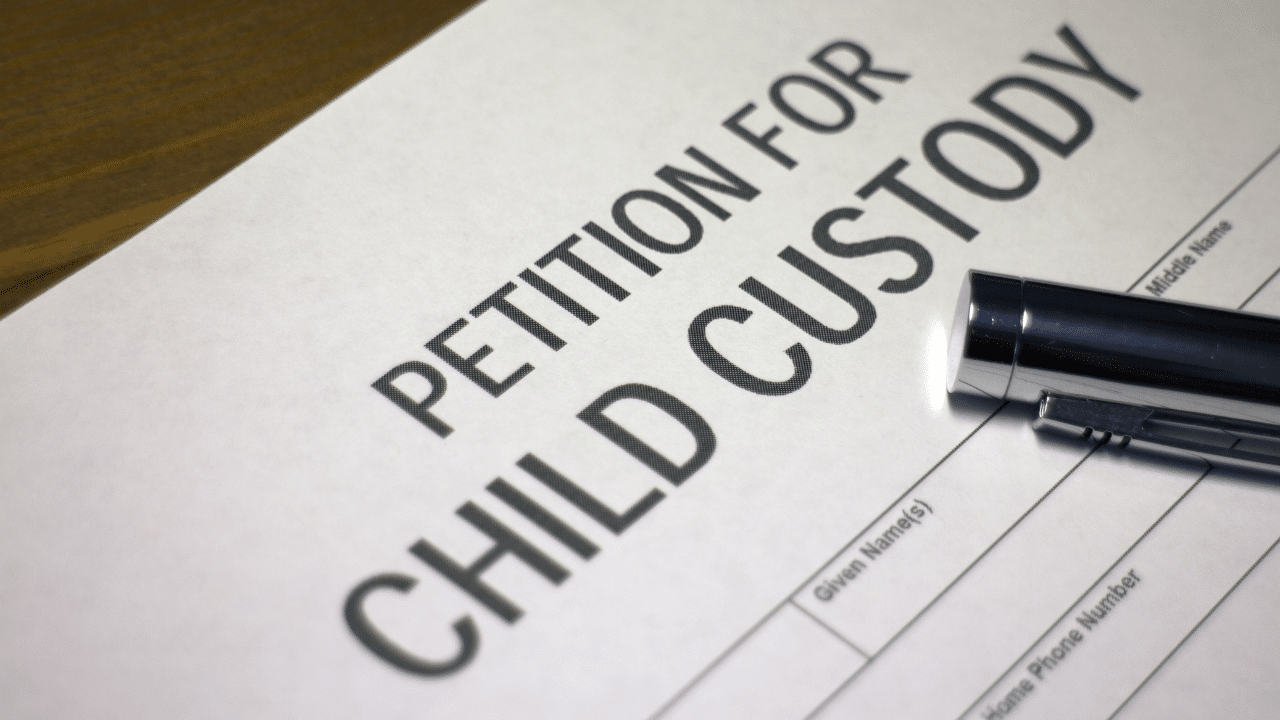If you’re living outside Illinois but your child resides here, you may be wondering if you can still fight for custody or parenting time. The answer is yes, but interstate cases between U.S. states involve specific legal rules under the UCCJEA that most parents aren’t familiar with.
This guide explains how out-of-state custody disputes work under Illinois law, especially when multiple states are involved. You’ll learn how jurisdiction is determined, what steps to take to assert your rights, and how to avoid mistakes that could hurt your case.
Note: This article covers interstate cases within the United States. If your situation involves international custody issues, see our guide on Understanding International Child Custody.
Can You Fight for Custody from a Different State?
Yes, but you must act within the legal limits of jurisdiction. Illinois courts, and those in almost every U.S. state, follow the UCCJEA. This law governs where and how custody disputes can be filed, enforced, or modified across state lines. It was designed to avoid conflicting orders and protect the stability of the child’s environment.
Jurisdiction matters more than geography. Even if you’re highly involved in your child’s life, filing in the wrong state or waiting too long can lead to delays or dismissal.
What is the UCCJEA and Why Does It Matter?
The Uniform Child Custody Jurisdiction and Enforcement Act (UCCJEA) determines which state has the legal authority to decide custody issues. According to the Office of Justice Programs, the UCCJEA is “designed to deter interstate parental kidnapping and promote uniform jurisdiction and enforcement provisions in interstate child-custody and visitation cases.”
Nearly every state, including Illinois, follows the UCCJEA.
Under the UCCJEA:
- A child’s “home state” is where they’ve lived for at least six consecutive months before a case is filed. That state usually has jurisdiction.
- If no state qualifies, or the home state declines jurisdiction, Illinois may hear the case.
- Emergency jurisdiction is allowed when the child is in danger and immediate action is necessary.
- Oftentimes, previous Judgments will name a state which shall be considered the child’s “home state” for UCCJEA purposes.
Failing to understand these rules can cost you time, money, and leverage in court. Filing in a state without jurisdiction may result in dismissal or an unenforceable order.
Illinois UCCJEA Custody Rules: When Can Illinois Hear the Case?
Illinois courts can decide custody issues if:
- Illinois is the child’s home state.
- No other state qualifies, or another state declines jurisdiction.
- The child is currently in Illinois and emergency circumstances require immediate action.
- There is a previous Judgment stating that Illinois is the child’s home state for UCCJEA purposes.
The court will also look at the child’s best interest factors such as safety, past abuse, and ongoing legal cases in other states.
For more information on how Illinois courts handle jurisdictional matters, see our page on Child Custody and Visitation.
The Critical UCCJEA Judicial Teleconference
One of the most important yet least understood aspects of interstate custody cases is the judicial teleconference. When courts in two states both believe they have jurisdiction, judges are required to communicate directly to resolve conflicts.
How Judicial Teleconferences Work
Judges from both states schedule a conference call to discuss which court should handle your case. This isn’t a formal hearing, but the outcome often determines the entire direction of your custody dispute.
Why This Matters to You
The teleconference decides which state will hear your case. You may or may not be allowed to participate. Some judges permit parents and attorneys to be present, while others conduct discussions privately between courts.
Protecting Your Interests
Having experienced Illinois counsel present during these conferences can be crucial. An attorney familiar with UCCJEA procedures can ensure your position is properly represented to the Illinois judge and counter any arguments made by the other parent’s attorney.
Illinois law requires judicial communications to be recorded or transcribed, and you have the right to access these records. However, discussions about scheduling and logistics may not be recorded.
How to Start a Custody Case from Out of State
If Illinois has jurisdiction, here’s what you need to do:
- File your petition in the family court in the Illinois county where the child lives.
- Serve notice to the other parent in accordance with Illinois law. Out-of-state service must follow formal civil procedure requirements.
- Register any prior custody orders issued in other states if you’re seeking enforcement or modification.
- Provide documentation of your involvement: communication history, support payments, school interactions, and more.
The court may schedule hearings that involve judges or officials from multiple states. You’ll want legal representation familiar with both the local courts and multi-state legal coordination.
Planning to Move To Illinois With Your Child?
If you’re currently living in another state and want to relocate to Illinois with your child, different legal requirements apply. You’ll need to follow your current state’s relocation laws and potentially Illinois procedures as well.
Moving to Illinois involves complex considerations including your current state’s notice and approval requirements, how the move affects existing custody orders, Illinois jurisdiction once you arrive, and modifying parenting time for the out-of-state parent.
Moving to Illinois involves complex interstate legal procedures. Our experienced child relocation lawyers can help you navigate Illinois law to ensure a smooth transition for your family.
Proving You’re an Involved Parent from Out of State
Judges don’t expect perfection. But they do want evidence that you’re engaged in your child’s life.
- Save records of regular calls, texts, and video chats.
- Document financial contributions, including informal support.
- Show patterns of offering to co-parent, attend events, or adjust plans in the child’s interest.
- Keep evidence of any interference or uncooperative behavior from the other parent.
- Provide a detailed parenting plan that works across state lines and shows you’re prioritizing the child’s stability and well-being.
Concerned about proving your involvement? We help parents document their active role and create compelling evidence for Illinois courts.
Common Mistakes That Hurt Out-of-State Custody Cases
- Filing in a state without jurisdiction
- Waiting too long after a relocation to take legal action
- Not tracking your communication and support history
- Assuming good intentions will substitute for legal precision
- Failing to formally register out-of-state orders in Illinois
Each of these can jeopardize your chances, even if your case is strong on the facts.
Case Example: Out-of-State Father Reclaims Custody in Illinois Dispute
One Anderson Boback & Marshall’s client, a father based out-of-state, contacted us after his former partner moved their child to Illinois without notice. This violated their standing custody order and raised immediate jurisdictional concerns.
With supporting documentation of the father’s continued involvement, daily phone calls, medical authorizations, and shared expenses, we secured an out-of-state judicial conference between the two states. The Illinois court declined jurisdiction, and the father regained parenting time through his state’s court.
It’s a powerful example of how early legal intervention and UCCJEA procedures can make all the difference.
Ready to protect your parental rights? Contact Anderson Boback & Marshall today for immediate assistance with your interstate custody situation.
Explore more success stories on our Case Victories page.
When to Call an Illinois Custody Attorney from Another State
Reach out to an Illinois attorney if:
- Your child has been moved to Illinois without your agreement
- You want to enforce or change an order from another state
- You’ve been served in Illinois while living elsewhere
- You need to confirm which state has custody jurisdiction
Custody Across State Lines: Key Takeaways
Out-of-state custody litigation isn’t just about location. It’s about timing, jurisdiction, documentation, and your ability to act quickly and effectively. A local family law attorney ensures your documents are filed correctly and your case is handled with the urgency it deserves.
Anderson Boback & Marshall has helped parents nationwide secure and protect their rights in Illinois courts. Whether you need to file, register an order, or fight for parenting time, our team is ready to help.
Don’t let distance or complex legal procedures prevent you from fighting for your relationship with your child. With proper legal guidance, you can successfully navigate interstate custody challenges and secure arrangements that serve your child’s best interests.
Out-of-State Custody FAQs You Need to Know
Can I get custody if I don’t live in the same state as my child?
Yes. If Illinois has proper jurisdiction, and you can demonstrate consistent involvement, the court can award parental responsibilities or parenting time that reflects your child’s best interests.
How do I know which state has custody jurisdiction?
Usually, it’s the child’s home state, the one where they’ve lived for six consecutive months before filing. If there’s a dispute, the courts may consult each other to determine jurisdiction under the UCCJEA.
What happens during a UCCJEA judicial teleconference?
Judges from different states communicate directly to resolve jurisdictional conflicts. These conferences can determine which state will hear your case. You may or may not be allowed to participate, making experienced legal representation crucial during this critical phase.
What if the other parent moved to Illinois without telling me?
You may still be able to pursue custody in the child’s previous home state. But acting quickly is critical to preserve your rights and stop the new state from taking over.
Can I modify custody if the original order was from another state?
Yes, but only after formally registering the order in Illinois. The court must then determine if it has legal authority to make changes, and then will conduct a best interest analysis for any requested modifications.
Do I need a lawyer in Illinois if my child lives there?
Absolutely. An Illinois attorney understands local procedures, UCCJEA nuances, and how to present your case in a way the court will respect.















